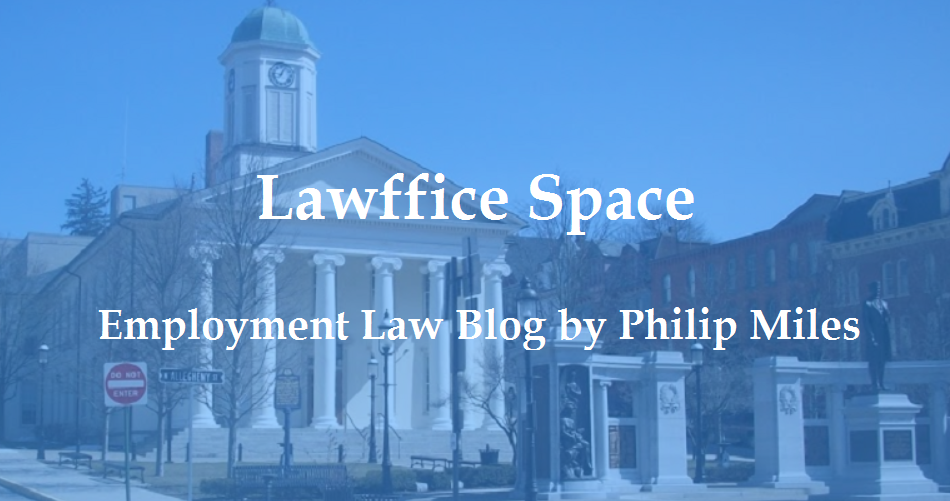 Time to tackle the NLRB’s social media memo: Report of the Acting General Counsel Concerning Social Media Cases. This is the start of the analysis, and I have a plan for future posts. My initial reaction was that the NLRB interpretation seems to afford pretty broad protection to some pretty stupid Internet posts.
Time to tackle the NLRB’s social media memo: Report of the Acting General Counsel Concerning Social Media Cases. This is the start of the analysis, and I have a plan for future posts. My initial reaction was that the NLRB interpretation seems to afford pretty broad protection to some pretty stupid Internet posts. 1. They Addressed Working Conditions – The immature name-calling occurred in the broader context of discussing working conditions (employer’s method of withholding taxes, employer’s poor sales event which impacted employees’ commissions; and unlawful denial of Weingarten rights); and
2. They Involved Other Employees – In most of the examples, the posts occurred in Facebook discussions (posts and comments) in which multiple employees participated. In one example, one employee posted pictures and comments alone – but he had discussed the concerns raised by the posts with employees offline (and told them he’d post the pictures) and so it was still found to be “concerted activity.”
The derogatory and offensive nature of some of the posts was downplayed and found “not opprobrious.” The Court described the various posts as “innocuous,” not threatening, or provoked by unlawful activity. Other factors weighing in favor of protection were posting off-duty, not disrupting operations, and not undermining supervisory authority.
In short, the NLRB memo interprets the NLRA as providing broad protection to employees discussing working conditions on social media... even if the posts are a little (not a lot) offensive.
Posted by Philip Miles, an attorney with McQuaide Blasko in State College, Pennsylvania in the firm's civil litigation and labor and employment law practice groups.

No comments:
Post a Comment